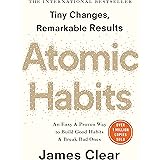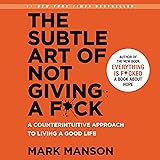
Introduction:
In today’s fast-paced world, dealing with stress has become an unwelcome reality for many. From the pressures of work deadlines to personal challenges, it’s easy to fall victim to its grip without even realizing it. However, the consequences of stress on our health are far-reaching and severe. Chronic stress can wreak havoc on both our physical and mental well-being, leading to a myriad of health issues such as cardiovascular problems, weakened immune systems, and even mental health disorders like anxiety and depression.
Understanding the Impact of Stress on Health
The body’s response to stress, often referred to as the “fight or flight” response, triggers a cascade of physiological reactions designed to help us deal with perceived threats. While this response can be beneficial in short bursts, prolonged exposure to stress hormones like cortisol and adrenaline can take a significant toll on our bodies over time. Chronic stress has been linked to an increased risk of heart disease, obesity, diabetes, gastrointestinal problems, and more. Additionally, it can impair cognitive function, disrupt sleep patterns, and contribute to mood disorders.
Strategies for Stress Reduction
- Regular Exercise: Physical activity is one of the most effective ways of dealing with stress. Aim for at least 30 minutes of moderate exercise most days of the week. Activities like walking, jogging, swimming, or yoga can help reduce tension and improve mood.
- Prioritize Sleep: Adequate sleep is essential for stress management. Aim for 7-9 hours of quality sleep each night by establishing a relaxing bedtime routine, avoiding caffeine and screens before bed, and creating a comfortable sleep environment.
- Healthy Eating Habits: A balanced diet rich in fruits, vegetables, whole grains, and lean proteins can provide essential nutrients that support stress resilience. Avoid excessive caffeine, sugar, and processed foods, which can exacerbate stress levels.
- Practice Relaxation Techniques: Incorporate relaxation techniques such as deep breathing exercises, progressive muscle relaxation, or guided imagery into your daily routine. These practices can help calm the mind and reduce physical tension.
- Set Boundaries: Learn to say no to tasks or commitments that overwhelm you. Setting realistic limits and boundaries can help prevent burnout and reduce stress levels.
The Power of Meditation
One particularly effective stress-relief practice gaining popularity in recent years is meditation. Meditation involves training the mind to focus and redirect thoughts, often through techniques like mindfulness or guided visualization. Numerous studies have demonstrated the beneficial effects of meditation on stress reduction and overall mental health.
How Meditation Helps
When we meditate, we enter a state of deep relaxation that counteracts the physiological effects of stress. By quieting the mind and focusing our attention on the present moment, we can break free from the cycle of negative thoughts and worries that contribute to stress. Meditation also promotes emotional resilience, helping us better cope with life’s challenges and setbacks.
From a physiological standpoint, meditation triggers the body’s relaxation response, which reduces heart rate, lowers blood pressure, and decreases muscle tension. Regular meditation practice has been shown to decrease the production of stress hormones like cortisol while increasing levels of neurotransmitters associated with happiness and well-being, such as serotonin and dopamine.
Incorporating meditation into your daily routine can be transformative for stress management. Start with just a few minutes each day, gradually increasing the duration as you become more comfortable with the practice. Experiment with different techniques to find what works best for you, whether it’s mindfulness meditation, loving-kindness meditation, or guided imagery.
Conclusion
In conclusion, stress is a pervasive force in modern life that can have profound effects on our health and well-being. However, by adopting healthy lifestyle habits and incorporating practices for dealing with stress such as meditation into our daily routine, we can mitigate its negative impact and cultivate a greater sense of peace and balance in our lives.
The benefits of meditation and mindfulness
Lions Mane Mushroom Extract Supplement 2000mg - 180 High Strength Vegan Tablets with Black Pepper - (Not Powder or Capsules) Made in The UK by New Leaf Products
£9.95 (as of March 22, 2024 13:32 GMT +00:00 - More infoProduct prices and availability are accurate as of the date/time indicated and are subject to change. Any price and availability information displayed on [relevant Amazon Site(s), as applicable] at the time of purchase will apply to the purchase of this product.)Omega 3 Fish Oil 2000mg, EPA 660mg DHA 440mg per Daily Serving. 120 Capsules (2 Months Supply). Supports Heart, Brain Function and Eye Health. 2 Capsules Per Serving
£9.97 (as of March 22, 2024 13:32 GMT +00:00 - More infoProduct prices and availability are accurate as of the date/time indicated and are subject to change. Any price and availability information displayed on [relevant Amazon Site(s), as applicable] at the time of purchase will apply to the purchase of this product.)Natures Aid Vitamin D3 Mini Drops for Infants and Children, Sugar Free, 50ml
£4.13 (as of March 22, 2024 13:32 GMT +00:00 - More infoProduct prices and availability are accurate as of the date/time indicated and are subject to change. Any price and availability information displayed on [relevant Amazon Site(s), as applicable] at the time of purchase will apply to the purchase of this product.)Centrum Advance Multivitamin & Mineral Supplements, 24 essential nutrients including vitamin D, C, Calcium, Daily Multivitamin Tablets, 180 (Packaging and Tablet colour may vary slightly)
£18.25 (as of March 22, 2024 13:32 GMT +00:00 - More infoProduct prices and availability are accurate as of the date/time indicated and are subject to change. Any price and availability information displayed on [relevant Amazon Site(s), as applicable] at the time of purchase will apply to the purchase of this product.)Natures Aid L-Lysine 1000 mg, High Potency Essential Amino Acid, Vegan, 60 Tablets
£8.95 (as of March 22, 2024 13:32 GMT +00:00 - More infoProduct prices and availability are accurate as of the date/time indicated and are subject to change. Any price and availability information displayed on [relevant Amazon Site(s), as applicable] at the time of purchase will apply to the purchase of this product.)Applied Nutrition ABE Pre Workout - All Black Everything Pre Workout Powder, Energy & Physical Performance with Citrulline, Creatine, Beta Alanine (375g - 30 Servings) (Cherry Cola)
£18.69 (as of March 22, 2024 13:32 GMT +00:00 - More infoProduct prices and availability are accurate as of the date/time indicated and are subject to change. Any price and availability information displayed on [relevant Amazon Site(s), as applicable] at the time of purchase will apply to the purchase of this product.)Omega 3 2000mg with 660mg EPA & 440mg DHA per Serving - 240 Softgel Capsules of Sustainably Sourced Pure Omega 3 Fish Oil - Made in The UK by Nutravita
£14.54 (as of March 22, 2024 13:32 GMT +00:00 - More infoProduct prices and availability are accurate as of the date/time indicated and are subject to change. Any price and availability information displayed on [relevant Amazon Site(s), as applicable] at the time of purchase will apply to the purchase of this product.)Vitabiotics Ultra Vitamin D Tablets 2000IU Extra Strength - 96 Count ( Pack of 1)
£4.75 (as of March 22, 2024 13:32 GMT +00:00 - More infoProduct prices and availability are accurate as of the date/time indicated and are subject to change. Any price and availability information displayed on [relevant Amazon Site(s), as applicable] at the time of purchase will apply to the purchase of this product.)Vitabiotics Wellwoman 50+, 30 Tablets, Pack of 1
£6.95 (as of March 22, 2024 13:32 GMT +00:00 - More infoProduct prices and availability are accurate as of the date/time indicated and are subject to change. Any price and availability information displayed on [relevant Amazon Site(s), as applicable] at the time of purchase will apply to the purchase of this product.)Vitabiotics Ultra Iron Tablets, Pack of 30
£3.69 (as of March 22, 2024 13:32 GMT +00:00 - More infoProduct prices and availability are accurate as of the date/time indicated and are subject to change. Any price and availability information displayed on [relevant Amazon Site(s), as applicable] at the time of purchase will apply to the purchase of this product.)The Psychology of Money: Timeless lessons on wealth, greed, and happiness
£11.24 (as of March 22, 2024 13:32 GMT +00:00 - More infoProduct prices and availability are accurate as of the date/time indicated and are subject to change. Any price and availability information displayed on [relevant Amazon Site(s), as applicable] at the time of purchase will apply to the purchase of this product.)The Chimp Paradox: The Acclaimed Mind Management Programme to Help You Achieve Success, Confidence and Happiness
£10.49 (as of March 22, 2024 13:32 GMT +00:00 - More infoProduct prices and availability are accurate as of the date/time indicated and are subject to change. Any price and availability information displayed on [relevant Amazon Site(s), as applicable] at the time of purchase will apply to the purchase of this product.)How to Talk to Anyone: 92 Little Tricks for Big Success in Relationships
£4.99 (as of March 22, 2024 13:32 GMT +00:00 - More infoProduct prices and availability are accurate as of the date/time indicated and are subject to change. Any price and availability information displayed on [relevant Amazon Site(s), as applicable] at the time of purchase will apply to the purchase of this product.)Feel Good in 15: The how to guide from best-selling author and body coach with tips and tricks to boost your wellness, health and fitness
£6.99 (as of March 22, 2024 13:32 GMT +00:00 - More infoProduct prices and availability are accurate as of the date/time indicated and are subject to change. Any price and availability information displayed on [relevant Amazon Site(s), as applicable] at the time of purchase will apply to the purchase of this product.)Don't Believe Everything You Think: Why Your Thinking Is The Beginning & End Of Suffering (Beyond Suffering Book 1)
£3.92 (as of March 22, 2024 13:32 GMT +00:00 - More infoProduct prices and availability are accurate as of the date/time indicated and are subject to change. Any price and availability information displayed on [relevant Amazon Site(s), as applicable] at the time of purchase will apply to the purchase of this product.)The Book You Wish Your Parents Had Read (and Your Children Will Be Glad That You Did): THE #1 SUNDAY TIMES BESTSELLER
£9.36 (as of March 22, 2024 13:32 GMT +00:00 - More infoProduct prices and availability are accurate as of the date/time indicated and are subject to change. Any price and availability information displayed on [relevant Amazon Site(s), as applicable] at the time of purchase will apply to the purchase of this product.)Atomic Habits: the life-changing million-copy #1 bestseller
£9.50 (as of March 22, 2024 13:32 GMT +00:00 - More infoProduct prices and availability are accurate as of the date/time indicated and are subject to change. Any price and availability information displayed on [relevant Amazon Site(s), as applicable] at the time of purchase will apply to the purchase of this product.)The Self-Sufficiency Garden: Feed Your Family and Save Money: THE #1 SUNDAY TIMES BESTSELLER
£14.97 (as of March 22, 2024 13:32 GMT +00:00 - More infoProduct prices and availability are accurate as of the date/time indicated and are subject to change. Any price and availability information displayed on [relevant Amazon Site(s), as applicable] at the time of purchase will apply to the purchase of this product.)The Subtle Art of Not Giving a F*ck: A Counterintuitive Approach to Living a Good Life
£11.38 (as of March 22, 2024 13:32 GMT +00:00 - More infoProduct prices and availability are accurate as of the date/time indicated and are subject to change. Any price and availability information displayed on [relevant Amazon Site(s), as applicable] at the time of purchase will apply to the purchase of this product.)Why Has Nobody Told Me This Before?: The No 1 Sunday Times Bestseller 2022
£8.00 (as of March 22, 2024 13:32 GMT +00:00 - More infoProduct prices and availability are accurate as of the date/time indicated and are subject to change. Any price and availability information displayed on [relevant Amazon Site(s), as applicable] at the time of purchase will apply to the purchase of this product.)Please consider subscribing to our monthly newsletter





















Pingback: benefits of mindfulness meditation, meditation benefits, mindfulness